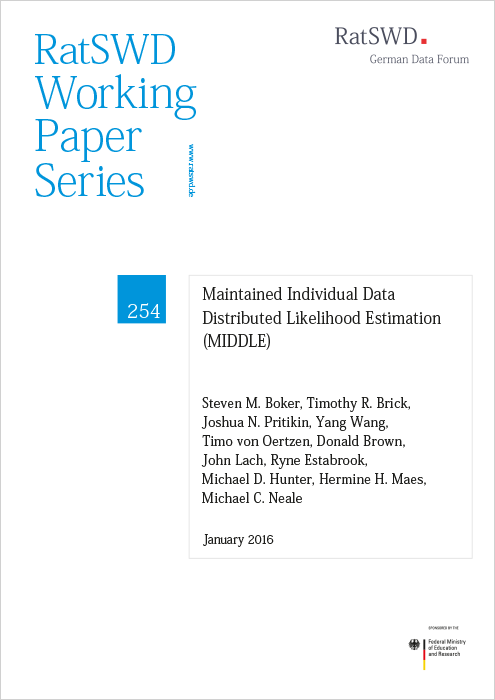Maintained Individual Data Distributed Likelihood Estimation (MIDDLE)
Publication details
Abstract
Maintained Individual Data Distributed Likelihood Estimation (MIDDLE) is a novel paradigm for research in the behavioral, social, and health sciences. The MIDDLE approach is based on the seemingly-impossible idea that data can be privately maintained by participants and never revealed to researchers, while still enabling statistical models to be fit and scientific hypotheses tested. MIDDLE rests on the assumption that participant data should belong to, be controlled by, and remain in the possession of the participants themselves. Distributed likelihood estimation refers to fitting statistical models by sending an objective function and vector of parameters to each participants’ personal device (e.g., smartphone, tablet, computer), where the likelihood of that individual’s data is calculated locally. Only the likelihood value is returned to the central optimizer. The optimizer aggregates likelihood values from responding participants and chooses new vectors of parameters until the model converges. A MIDDLE study provides significantly greater privacy for participants, automatic management of optin and opt-out consent, lower cost for the researcher and funding institute, and faster determination of results. Furthermore, if a participant opts into several studies simultaneously and opts into data sharing, these studies automatically have access to individual-level longitudinal data linked across all studies.
